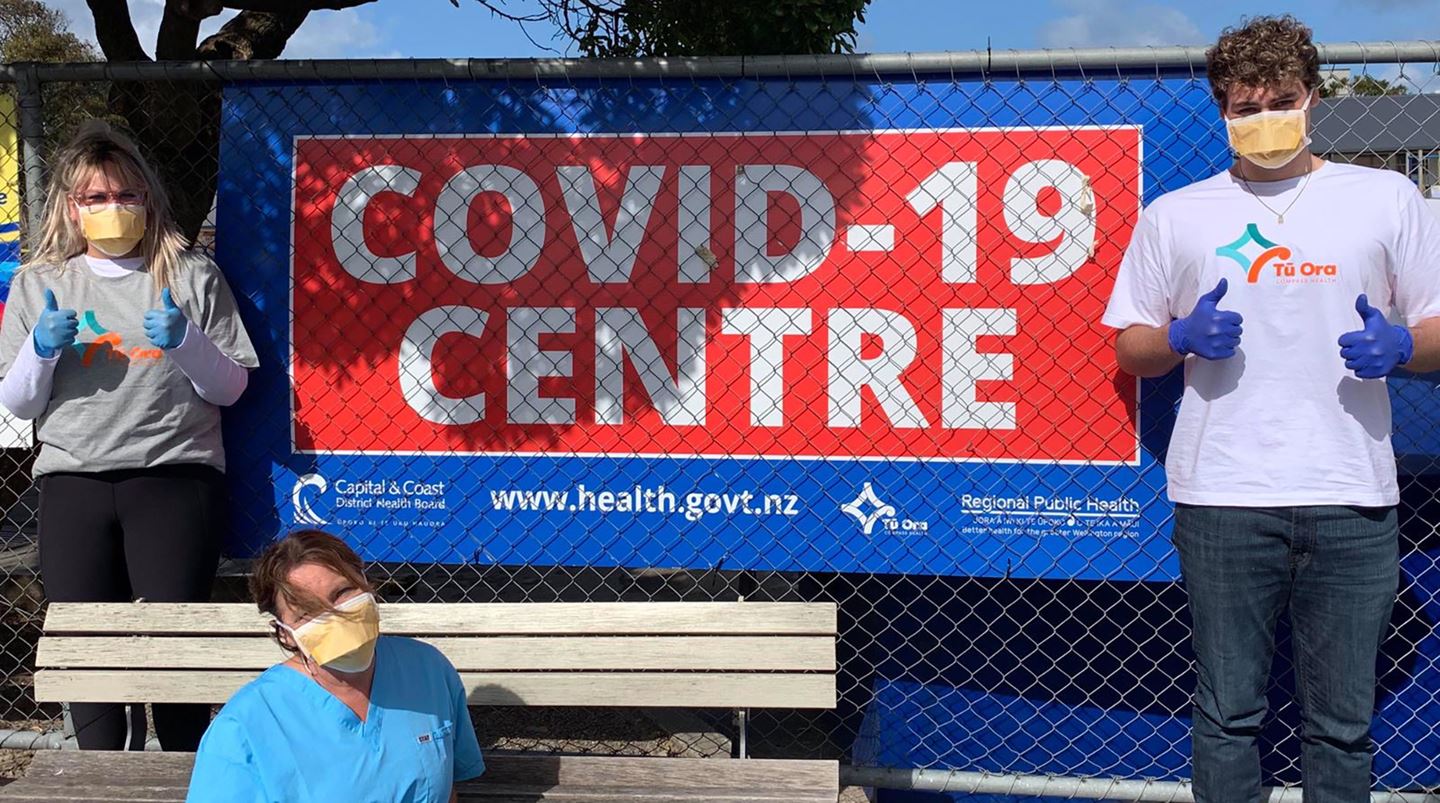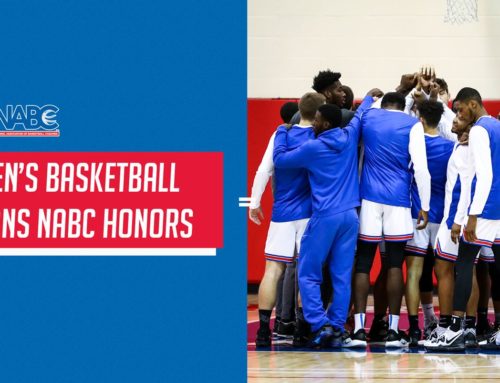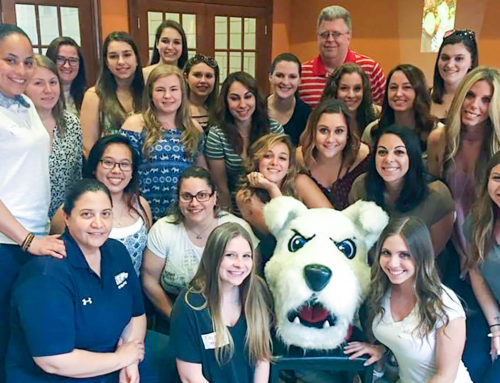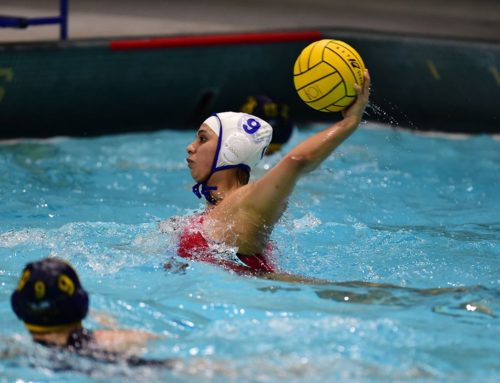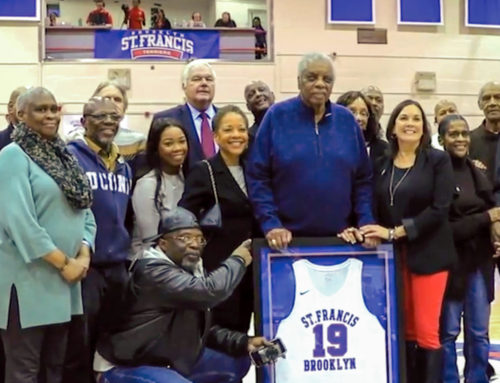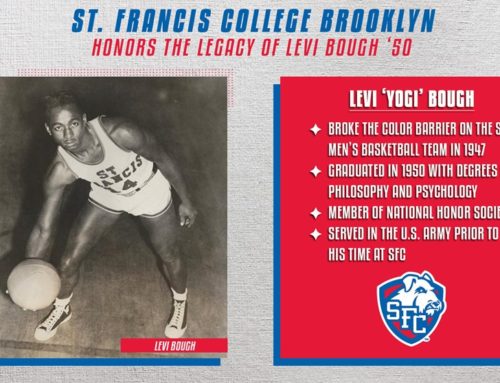Terrier Spotlight
Men’s Water Polo’s William Simpson Volunteers to Help Fight COVID-19 Pandemic in Native New Zealand
By Vukasin Petrovic ’20
In the uncertain time that will become tomorrow’s history lesson, we are faced with a challenge seemingly unprecedented in my generation. We are not allowed outside except for the essentials, we are not allowed to leave our home if we’ve traveled abroad, and there is an ominous invisible enemy we are all fighting.
While many are sitting at home and going about their business remotely, some are on the frontlines, whose business is to fight and who cannot do their job from home. As the world is finally learning the value of these essential workers—so are its people. That’s why we go out on our balconies and clap. We clap to support the medical workers, and first responders, and in this universal language, stay united all over the globe.

William Simpson, SFC Men’s Water Polo
I like to believe that we are not clapping only for our own respective countries. We are doing so for medical workers and first responders everywhere. We are doing so for those in America, Serbia, New Zealand, Spain, Brazil… the list goes on, and there are too many countries and too many Terriers from those countries to count. But there is one on the frontline—William Simpson or, as he mostly goes by at 180 Remsen Street—Billy. Billy is a freshman on the men’s water polo team and hails from New Zealand.
As an international student from New Zealand, Billy was one of many who returned home once the recommendation to leave the United States was issued. Thankfully, he left early enough to avoid being quarantined. He left soon enough to avoid the fate of thousands of people who ended up stuck at airports all over the world because commercial flights abruptly stopped taking off. And thankfully, he left early enough to be able to join the fight.
“I want to use my time to help others,” Billy said to me when I called him. “I don’t want just to sit around and wait it out.”
As we were powering through the 11-hour time difference, Billy shared his story with me as I was sipping my morning coffee, and as he was preparing to go to bed.
New Zealand, a country of a little less than four million people, is under a Level-4 lockdown. The measures seem to correspond to how most countries are dealing with the situation. People have to maintain social distance and are not supposed to leave for more than 12 miles, and they are not to have contact with people who are outside of your social bubble.
Billy described what exactly a social bubble was. “Basically, your work and family in this case. It encompasses my work now as I am registered as an essential worker,” he said.
Although studying at St. Francis College, Billy went home not only as a precaution but also to be able to assist his mother and sister, who have been fighting COVID-19 in their home country.

Billy Simpson
“My mom used to manage medical centers in Wellington before all this started,” he said. “With the new situation, she is now managing one of the testing clinics. My sister Claudia was helping her out first, and then I joined once I came back.”
Billy walked me through the harsh reality of what it means to be one of the admins for a COVID-19 testing clinic. I asked him about his job description, he shrugged and said. “I can’t really say.”
His inability to describe his position didn’t come as a consequence of the fact that Billy only recently started. It was a consequence of the versatility that the role required. He and his sister would cover a lot of ground to make sure that the clinic runs as efficiently as possible. They go and create lab forms for incoming patients, make lists of symptoms, go over the referrals, then input all the data in the national database.
“Sometimes we go out and talk to the people outside of the clinic who are sitting in their cars. There are also medical professionals who put their protective gear on and go to people’s homes and test them there. There are those who are unable to come down to the clinic, so we had to figure out a way to help them out as well,” he said.
Billy’s story confirms how vulnerable some people are. With lockdowns and quarantines being issued all over the world, people are learning how beneficial it is to be able to go out and buy groceries. Those unable to leave their home have to rely on their family and friends to bring them groceries or anything they might need. If they don’t have anyone—they rely on the kindness of the volunteers who do so. Of course, that is an issue of a non-infected person. An infected person with no way of reaching the clinic has to rely on the competence and benevolence not only of the system but also of those brave enough to go out and expose themselves.
I wanted to speak with Billy’s mom Melissa as well, so she explained the current situation and how New Zealand is dealing with the crisis. Before he put her on, Billy warned me that his mom might get a bit “doctory.”
As she took the phone, I asked her how she was doing. “Tired but doing well,” she said.
New Zealand is taking a different approach from countries like the United Kingdom who are employing a testing system like a proverbial “tsunami”: testing as many people as possible who are showing the symptoms. But New Zealand is divided into about 15 districts that are remote from each other; their approach is to solve the issue district by district. Even though they have limited resources distributed by the Ministry of Health, they are managing to keep the numbers low with the idea to slowly open up the districts in which the virus has been beaten. When I asked her about her children, Melissa shifted her “doctory” pragmatism to parental joy.
“I couldn’t be prouder of my kids,” she said. “There are a lot of people who are anxious about this, and I get that. But some people really need to go in and do what is necessary. Billy and Claudia didn’t really have to put their hands up and volunteer to do this the way they did. They’re good kids.”
As Billy took the phone back and went to his room, I asked him what his take on the whole situation is. His first year of college ended abruptly and in such an unexpected way. As the entire world is facing a crisis, I find it important to remind myself that the world consists of individuals who have worlds of their own. Billy was just one of many, but he was a Terrier, and he was helping out. His first year was very different than what it was supposed to be, and I asked him if Billy, who left New York, is going to be the same Billy that returns to it.
“Honestly, it’s a stressful time for everybody,” Billy began. “If I learned one thing, it’s that everyone’s anxious. Everyone’s stressed. I had to learn how to deal with people who are all dealing with this situation in their own way while also managing to stay professional and do my job. It’s a scary time, but I hope that it will turn me into a person who manages to not only deal with a tough situation but also understand the people in that situation and that they might deal with it differently than I do. So, I think I’ll go back as a more understanding person,” he concluded.
We had to wrap it up as Billy was about to go to bed. The following day, he would get up early with his mother and sister and leave for the clinic. I will go about my day, and then, at 7 p.m., I will go out on my balcony and clap for all the people trying to flatten the curve. I will clap for Billy and his family and many others whom I don’t have the pleasure of knowing. And I hope you do, too.



